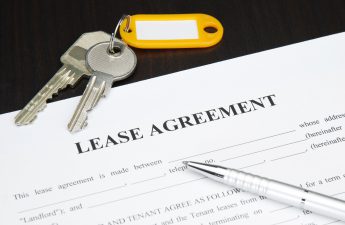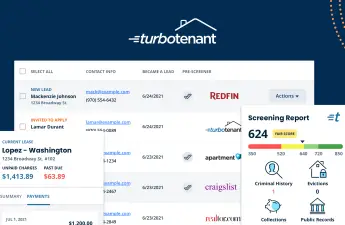This is a sponsored post from TFX. At Landlord Gurus, our mission remains to provide valuable resources and information that helps landlords manage their rental properties efficiently and profitably.
If you’re like most people, the idea of owning rental property sounds pretty appealing. After all, it’s a great way to make some extra money, and who doesn’t love the idea of owning their own little business? But before you take the plunge, it’s important to understand that there are several tax advantages to owning rental property. So if you’re on the fence about whether or not to buy a rental property, read on. These tax benefits of rental property might just be the thing that tips the scales in your favor!
1. Mortgage Interest Deduction
For house loans of up to $1 million, homeowners can deduct their mortgage interest. They can also write off a portion of the money they borrowed as part of their home equity loan. However, you do not have to own a home to take advantage of the deduction.
Landlords can also benefit from the tax reduction by subtracting the interest they paid on their mortgages to purchase or patch up their homes. This is usually the largest deduction they are eligible for. If the extra money were utilized to improve or maintain the property, property owners can deduct additional amounts of interest and fees when refinancing a property for more than it was worth originally.
2. Landlords Qualify for Deductions That Homeowners Don’t
Although many expenses are deductible, the number of deductions available to homeowners is restricted. For landlords, however, this is not the case. Aside from interest and mortgage points paid over the life of the loan, property owners can deduct payments for various types of insurance, such as homeowners insurance and health insurance for their employees.
If you rent an apartment and break something by accident, you won’t be able to claim a tax deduction for paying for the damage out of your own pocket. If you’re a landlord, though, you can deduct the expense of repairs for your renters. Utilities such as gas and electricity, as well as unpaid property taxes, are also deductible.
3. Depreciation
Many people think of their houses as investments that grow in value over time, but a rental property is more like a desk or a forklift in terms of company assets. Many corporate assets depreciate, meaning that their value decreases year after year until they reach the end of their service life. That’s usually (but not always) 27.5 years for rental properties.
If you own a rental property, you can usually deduct the depreciation on your tax return each year. However, the math isn’t precisely straightforward. There are several methods for calculating depreciation on a rental property, which is why, if you’re a landlord, it’s a good idea to seek advice from a trained tax professional. Co-ops and condominiums have their own set of rules. When a rental property is ready and available to rent, you can usually begin depreciating it.
4. Property Taxes
A property tax is a levy on the value of real estate. The amount of tax is mostly determined by the location of the property and its value. You can usually subtract the property taxes on a rental property if you remember to do so. Landlords typically overlook the deduction. Although there is a new cap on the property tax deduction ($10,000 for property taxes and either state and local income taxes or sales taxes combined, or $5,000 if married filing separately), that restriction does not apply to commercial activities.
5. Operating Expenses are Deductible
Tax deductions are available for expenses related to managing and maintaining a rental property. Ordinary and essential expenses, according to the IRS, can include:
6. Repairs
In general, expenses such as mending broken garbage disposals, replacing light bulbs, or patching holes in the wall are normally tax deductible in the year they occur. Some expenses aren’t tax deductible. Instead, it is capitalized and may become part of your foundation (typically what you paid for the house).
For example, if you spend $25,000 to add a fourth bedroom to a $300,000 rental, you may not be able to deduct the $25,000 that year. That’s because the IRS now considers you to have paid $325,000 for the residence rather than $300,000. It’s possible that this will result in a larger depreciation write-off.
Repair charges are frequently misclassified on tax forms. Here are a few examples of things that the IRS advises should be capitalized in most cases. More information is available in IRS Publication 527.
TFX Takeaway: Tax Advantages to Owning Rental Property
If you’re looking for a way to reduce your taxable income, owning rental property might be the right move for you. By taking advantage of all the tax benefits available to landlords, you can keep more of your hard-earned money in your pocket. Have questions about rental income or rental properties? Do you need more landlord tax tips? We’re here to help. Give TFX a call today and let’s discuss what owning rental property can do for you and your bottom line.




